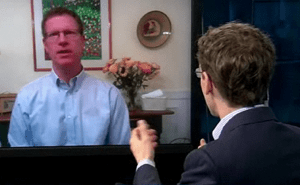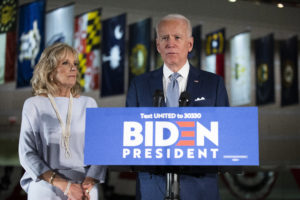Truthdigger of the Week: WSJ Writer Mark Maremont
Most of us know better than to trust men running for public office to tell the whole story of their past. For those inclined to forget, Wall Street Journal senior editor Mark Maremont offered a reminder this week when he uncovered hidden emails detailing Mitt Romney’s support for a law similar to a portion of Obamacare that is reviled by conservatives.For anyone with the tendency to trust men running for public office to tell the whole story of their past, WSJ senior editor Mark Meremont administered an antidote this week.
Most of us know better than to trust men running for public office to tell the whole story of their past. For those inclined to forget, Wall Street Journal senior editor Mark Maremont offered a reminder this week when he uncovered hidden emails detailing Mitt Romney’s support for a law similar to a portion of Obamacare that is reviled by conservatives.
In April 2006, then-Gov. Romney signed a health care reform bill requiring all Massachusetts residents to purchase health insurance or face tax penalties. According to Romney, the rule, known as an “individual mandate,” was created to prevent the burden of medical expenses incurred in the treatment of uninsured people from falling to taxpayers. (Incidentally, it also increases the number of Americans purchasing insurance from private health care companies.)
The same provision appears in the Patient Protection and Affordable Care Act, signed into law by President Obama in March 2010. But when that law was passed, Romney attacked the requirement as an act of federal trespass into matters appropriately decided by states.
In recent weeks, Maremont got ahold of a series of emails sent by Romney during the period when Massachusetts legislators were debating the law. Those emails contain a draft of an Op-Ed the governor wrote just before signing the bill, in which he energetically defended the mandate against conservative libertarians:
“Some of my libertarian friends balk at an individual mandate. But is it libertarian to insist that government pick up the tab for those without insurance or means to pay?” Romney asked. “An uninsured libertarian might counter that he could refuse the free care, but under law, that is impossible — and inhumane.”
The appeal to his colleagues’ humanity that appears above did not make it into the version that appeared in The Wall Street Journal the day before he signed the legislation.
Elsewhere, responding to Democratic suggestions that businesses that failed to offer health insurance be fined, Romney suggested that such companies deserved to be publicly shamed:
“I know the dems hate this, but we can also [throw] back in the Gov’s original notion of having some sort of ‘public disclosure’ of employers who promote a culture of uninsurance,” wrote one of Romney’s advisers in mid-February.
Romney tried to get rid of those emails. His staff deleted them from a server computer, and just to be safe, purchased 17 state-owned machines that were used during the course of his administration. But a small cache of those messages survived and was discovered by Maremont via a public records request.
As Maremont wrote in his report on the letters, the emails reveal a presidential candidate who has trumpeted “the overhaul as his signature achievement as governor, but [who] has since played it down amid GOP attacks on the 2010 federal health care bill signed by President Barack Obama.”
Romney has been caught in a contradiction, which he is trying to wriggle out of by invoking the conservative value of state’s rights. For making the governor-turned-would-be-president squirm, we honor Mark Maremont as our Truthdigger of the Week.
— Posted by Alexander Reed Kelly. Follow him on Twitter: @areedkelly.
WSJ.com
Your support matters…Independent journalism is under threat and overshadowed by heavily funded mainstream media.
You can help level the playing field. Become a member.
Your tax-deductible contribution keeps us digging beneath the headlines to give you thought-provoking, investigative reporting and analysis that unearths what's really happening- without compromise.
Give today to support our courageous, independent journalists.








You need to be a supporter to comment.
There are currently no responses to this article.
Be the first to respond.